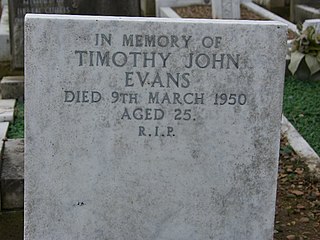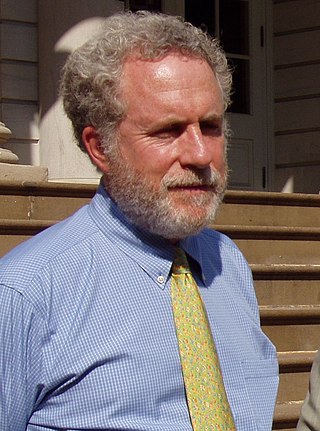Related Research Articles

Criminal justice is the delivery of justice to those who have been accused of committing crimes. The criminal justice system is a series of government agencies and institutions. Goals include the rehabilitation of offenders, preventing other crimes, and moral support for victims. The primary institutions of the criminal justice system are the police, prosecution and defense lawyers, the courts and the prisons system.
Innocence Project, Inc. is a 501(c)(3) nonprofit legal organization that is committed to exonerating individuals who have been wrongly convicted, through the use of DNA testing and working to reform the criminal justice system to prevent future injustice. The group cites various studies estimating that in the United States between 1% and 10% of all prisoners are innocent. The Innocence Project was founded in 1992 by Barry Scheck and Peter Neufeld who gained national attention in the mid-1990s as part of the "Dream Team" of lawyers who formed part of the defense in the O. J. Simpson murder case.

Benjamin Nathan Cardozo was an American lawyer and jurist who served on the New York Court of Appeals from 1914 to 1932 and as an Associate Justice of the Supreme Court of the United States from 1932 until his death in 1938. Cardozo is remembered for his significant influence on the development of American common law in the 20th century, in addition to his philosophy and vivid prose style.

A miscarriage of justice occurs when an unfair outcome occurs in a criminal or civil proceeding, such as the conviction and punishment of a person for a crime they did not commit. Miscarriages are also known as wrongful convictions. Innocent people have sometimes ended up in prison for years before their conviction has eventually been overturned. They may be exonerated if new evidence comes to light or it is determined that the police or prosecutor committed some kind of misconduct at the original trial. In some jurisdictions this leads to the payment of compensation.

The Benjamin N. Cardozo School of Law is the law school of Yeshiva University. Located in New York City and founded in 1976, the school is named for Supreme Court Justice Benjamin N. Cardozo. Cardozo graduated its first class in 1979. An LL.M. program was established in 1998. Cardozo is nondenominational and has a secular curriculum, in contrast to some of YU's undergraduate programs. Around 320 students begin the J.D. program per year, of whom about 57% are women. In addition, there are about 60–70 LL.M. students each year.

Peter J. Neufeld is an American attorney, co-founder, with Barry Scheck of the Innocence Project, and a founding partner in the civil rights law firm Neufeld Scheck & Brustin. Starting from his earliest years as an attorney representing clients at New York's Legal Aid Society, and teaching trial advocacy at Fordham School of Law from 1988 to 1991, he has focused on civil rights and the intersection of science and criminal justice.

Race in the United States criminal justice system refers to the unique experiences and disparities in the United States in regard to the policing and prosecuting of various races. There have been different outcomes for different racial groups in convicting and sentencing felons in the United States criminal justice system. Although prior arrests and criminal history is also a factor. Experts and analysts have debated the relative importance of different factors that have led to these disparities.
Bridget Mary McCormack is an American lawyer, professor, and retired justice. She served on the Michigan Supreme Court from 2013 to 2022, first as an associate justice, and as chief justice from 2019 to 2022. Previously she was a professor at the University of Michigan Law School in Ann Arbor, where she taught criminal law and legal ethics and oversaw the law school's clinical programs as associate dean of clinical affairs. Her academic work focused on practical experience in legal education. McCormack launched and worked in a pediatric advocacy law clinic focusing on children with health problems, and a domestic violence clinic. She retired from the Supreme Court at the end of 2022 and became President and Chief Executive Officer of the American Arbitration Association in February 2023.

Criminal justice reform seeks to address structural issues in criminal justice systems such as racial profiling, police brutality, overcriminalization, mass incarceration, and recidivism. Reforms can take place at any point where the criminal justice system intervenes in citizens’ lives, including lawmaking, policing, sentencing and incarceration. Criminal justice reform can also address the collateral consequences of conviction, including disenfranchisement or lack of access to housing or employment, that may restrict the rights of individuals with criminal records.
Heather Ann Thompson is an American historian, author, activist, professor, and speaker from Detroit, Michigan. Thompson won the 2017 Pulitzer Prize for History, the 2016 Bancroft Prize, and other awards for her work Blood in the Water: The Attica Prison Uprising of 1971 and Its Legacy.
Criminal justice reform seeks to address structural issues in criminal justice systems such as racial profiling, police brutality, overcriminalization, mass incarceration, and recidivism. Criminal justice reform can take place at any point where the criminal justice system intervenes in citizens’ lives, including lawmaking, policing, and sentencing.

13th is a 2016 American documentary film directed by Ava DuVernay. The film explores the prison-industrial complex, and the "intersection of race, justice, and mass incarceration in the United States"; it is titled after the Thirteenth Amendment to the United States Constitution, adopted in 1865, which abolished slavery throughout the United States and ended involuntary servitude except as a punishment for conviction of a crime. This allowed for a constitutional loophole in which black Americans became criminalized and faced involuntary servitude in the form of penal labor.
Susan Bandes is an American lawyer and the current Centennial Distinguished Professor Emeritus at DePaul University. Bandes is considered one of the 20 most cited law professors in criminal law and procedure.

Garlin Gilchrist II is an American politician and activist serving as the 64th lieutenant governor of Michigan since 2019. He is a member of the Democratic Party.

S. Lee Merritt is an American civil rights lawyer and activist, most known for his work on racial justice issues.

Decarceration in the United States involves government policies and community campaigns aimed at reducing the number of people held in custody or custodial supervision. Decarceration, the opposite of incarceration, also entails reducing the rate of imprisonment at the federal, state and municipal level. As of 2019, the US was home to 5% of the global population but 25% of its prisoners. Until the COVID-19 pandemic, the U.S. possessed the world's highest incarceration rate: 655 inmates for every 100,000 people, enough inmates to equal the populations of Philadelphia or Houston. The COVID-19 pandemic has reinvigorated the discussion surrounding decarceration as the spread of the virus poses a threat to the health of those incarcerated in prisons and detention centers where the ability to properly socially distance is limited. As a result of the push for decarceration in the wake of the pandemic, as of 2022, the incarceration rate in the United States declined to 505 per 100,000, resulting in the United States no longer having the highest incarceration rate in the world, but still remaining in the top five.
The BREATHE Act is a proposal for a federal omnibus bill, presented by the Electoral Justice Project of the Movement for Black Lives. The bill proposes to divest taxpayer dollars from policing and invest in alternate, community-based approaches to public safety.

Jerry Clayton is the elected Sheriff of Washtenaw County, Michigan. A 30-year public safety professional, Clayton was first elected sheriff in 2008. He was re-elected in 2012, 2016, and 2020
Jill Soffiyah Elijah is an American lawyer, author and social justice activist.

Lucy Lang is an American attorney, author, and the 11th Inspector General of New York.
References
- 1 2 "CLS Alumni and Associates Entering Teaching". www.law.columbia.edu. Retrieved 2020-06-20.
- ↑ "Ekow N. Yankah". cardozo.yu.edu. Retrieved 2020-06-20.
- ↑ PBS NewsHour | No wave of compassion when addicts were hooked on crack | Season 2016 , retrieved 2020-06-20
- ↑ Dorfman, Brandon A. (2019-10-11). "Drug Deaths in Black Communities and Our Collective Denial". The Fix. Retrieved 2020-06-20.
- ↑ "Professor Ekow Yankah Speaks on the Effects of Mass Incarceration | JDtoBe, The Official Blog of BYU Law School" . Retrieved 2020-06-20.
- ↑ Tom Hays and Colleen Long (4 December 2014). "Protests erupt after decision in chokehold death". Enidnews.com. Associated Press. Retrieved 2020-06-20.
- ↑ "Leadership". New York Democratic Lawyers Council. Retrieved 2020-06-20.
- ↑ "About NYDLC". New York Democratic Lawyers Council. Retrieved 2020-06-20.
- ↑ "Michigan Law". Michigan Law.
- ↑ "Board of Directors Archives". Innocence Project. Retrieved 2020-06-20.
- ↑ "Constitution Cafe: The Constitutional Limits of the Police Use of Force". International Festival of Arts and Ideas. Retrieved 2020-06-20.
- ↑ "Cafe Take: Constitutional Interpretations Pave Way For Brutality | New Haven Independent". www.newhavenindependent.org. 2020-06-11. Retrieved 2020-06-20.
- ↑ "Rethinking Police Accountability: A Call To Change Police Protections". WBEZ Chicago. 2020-06-16. Retrieved 2020-06-20.
- ↑ "Students, locals join forces to bring Ferguson discussion to Columbia". Columbia Daily Spectator. Retrieved 2020-06-20.
- ↑ "Public Health On Call: 094 - Racism, the Criminal Justice System, and the Legitimacy of the Police". johnshopkinssph.libsyn.com. Retrieved 2020-06-20.
- ↑ "Ekow N. Yankah" . Retrieved 2020-06-20.
- ↑ Yankah, Ekow N. (11 November 2017). "Opinion | Can My Children be Friends with White People?". The New York Times.
- ↑ "Hey, NYT, friendships are built on something deeper than race". 16 November 2017.